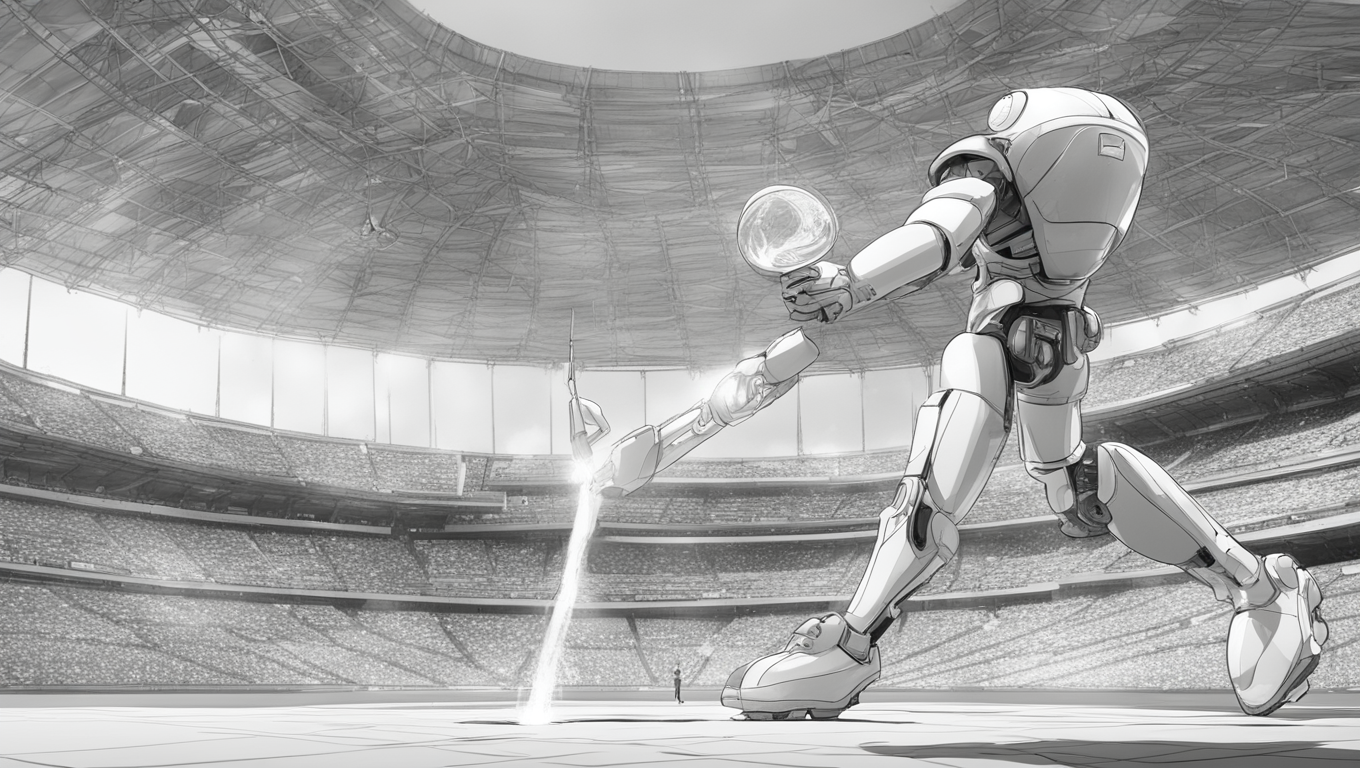The Olympic Games, the pinnacle of athleticism and sporting excellence, is no stranger to innovation. From the introduction of new sports to advancements in technology and equipment, the Games have always embraced progress. Now, the International Olympic Committee (IOC) is taking another leap forward by integrating artificial intelligence (AI) into various aspects of the Games.
At a recent press event held at the former London Olympic Park, IOC President Thomas Bach unveiled their agenda for AI implementation. This includes using AI to identify promising athletes, personalize training methods, and improve judging to ensure fair competition. Bach emphasized the importance of staying at the forefront of technological advancements, stating, “Today we are making another step to ensure the uniqueness of the Olympic Games and the relevance of sport. To do this, we have to be leaders of change.”
The IOC’s AI strategy comes just months before the Paris Olympics, which are set to begin in less than 100 days. In addition to its applications in athletic development and fair play, AI will also be utilized to protect athletes from online harassment and enhance the viewing experience for spectators watching from home. The IOC earns billions of dollars through the sale of broadcast rights, making the enhancement of the viewing experience a significant focus.
However, the use of AI in the Paris Olympics has already sparked controversy. Local organizers have proposed a video surveillance system that utilizes AI-powered cameras to identify potential security risks such as abandoned packages or crowd surges. While the intention is to enhance safety measures, concerns have been raised regarding privacy and the potential for misuse of surveillance technology.
Despite these concerns, the integration of AI into the Olympic Games marks a significant milestone in the convergence of technology and sports. AI has the potential to revolutionize how athletes train and compete, ultimately pushing the boundaries of human achievement. To gain insight into the impact of AI on sports, we spoke with Dr. Sarah Collins, a renowned sports scientist and researcher.
Collins believes that AI has the power to transform sports by providing personalized training methods tailored to an athlete’s unique physiology and performance data. She explains, “AI can analyze vast amounts of data in real-time and provide athletes with valuable feedback and recommendations to optimize their training. This can lead to faster improvements and a greater understanding of individual strengths and weaknesses.”
Additionally, the use of AI in judging and officiating can significantly improve the accuracy and fairness of decisions. Collins points out, “Human error is inevitable, and subjective judging can lead to controversy. By utilizing AI to assess performance metrics, we can minimize bias and create a more standardized approach to scoring.”
While the integration of AI in the Olympics is an exciting development, it also raises questions about the potential drawbacks and ethical considerations. Dr. James Allen, an expert in AI ethics, emphasizes the need for responsible AI implementation. “We must ensure that the use of AI is transparent, accountable, and respects individual privacy. There must be guidelines and regulations in place to safeguard against the misuse of data and protect the rights of athletes.”
As we eagerly await the start of the Paris Olympics, it is clear that this year’s Games will be a groundbreaking moment for the integration of AI in sports. From identifying talented athletes to enhancing training methods and improving judging, AI has the potential to revolutionize the world of sports and empower athletes like never before. As President Bach aptly stated, “We are determined to exploit the vast potential of AI in a responsible way.” The world will be watching as the Paris Olympics showcase the future of sports technology and innovation.





Use the share button below if you liked it.